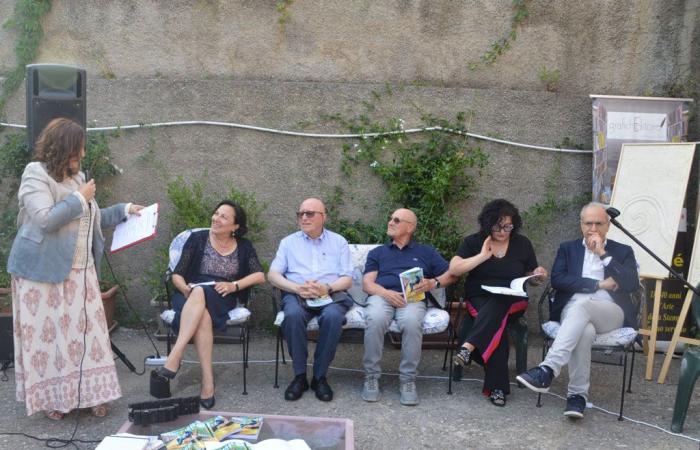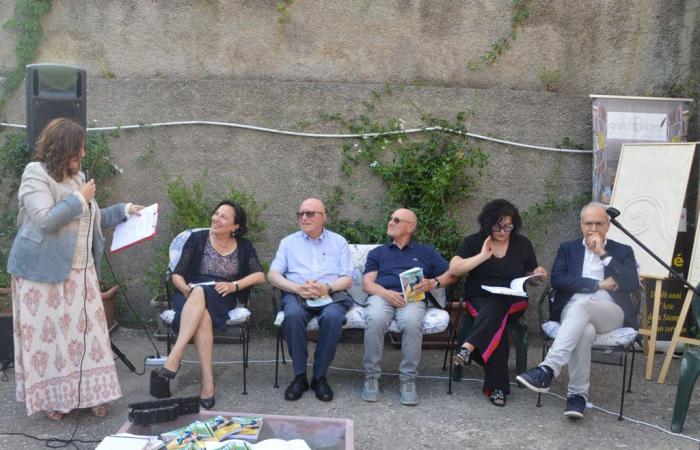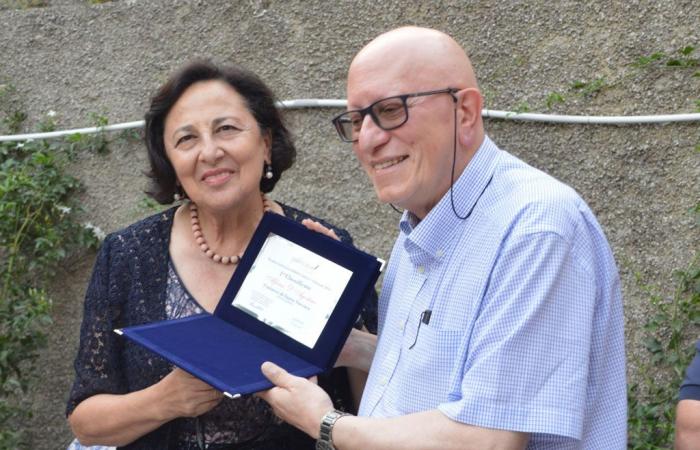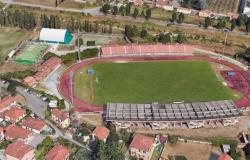Lamezia Terme – Public success and special guests on June 22, 2024 for the award ceremony of the V National Literary Competition 2024 (while the sixth edition is already underway) dedicated to the Calabrian poet Dario Galli. The winner was chosen, from the approximately 200 works received, by a jury formed by Italo Leone, president of the jury, Laura Calderini, Michela Cimmino, Lucia Mercuri and Giovanna Villella. Their choice fell on Alfonso D’Agostino, but Special Mentions were also awarded for “Laura’s Birthday” by Rosaura Galbiati, “In the Mirror” by Lorenzo Iannelli, “The Departure of Prof. Fermioni” by Maria Antonietta Marasco, “Waking Up at 109” by Nunziato Lamberti, “The Circus of Wonders” by Silvia Lisena, and “The Journey” by Stefano Melmeluzzi.
“The jury’s work was long, meticulous and tiring because the jurors had to read all the works received, which they received in an absolutely anonymous form, that is, without any signature or information that could be traced back to the author. Guests of the evening were the Honorable Doris Lo Moro, the mayor Paolo Mascaro, Italo Leone who spoke with the author, Giovanna Villella who read some pages of the book and, of course, the winner, Alfonso D’Agostino. The very talented Luigi Morello enlivened the evening by singing some songs. The journalist Maria Teresa Notarianni hosted the evening. Two works by the artist Rosella Cerra were exhibited – the organizers explain – The poet’s daughter, Donatella Galli, who was present at the evening, complimented the winner and offered him the plaque.” The author said: “The book that won is entitled “I misteri di Santa Varvàra”. Santa Varvàra is an imaginary town located between the Gulf of Lamezia and the Gulf of Gioia. The title does not want to refer to detective stories or mystery stories, but above all wants to investigate the psychology of some characters, the reaction that some characters have in front of many situations, dramatic, pathetic, tragic and so on. So the mysteries are what we keep in our hearts and that in some way are then expressed, but that, above all, depend on our sensitivity, fear, anguish, faith and hope. This should be the meaning that I wanted to attribute to what I wrote”. Italo Leone, speaking about the book, said: “The stories in this book go from 1520 to 2015. So five centuries of history. In these five centuries the constant is the Serre area, the other constant is history. That is, the stories are, so to speak, a chronological succession of events that show how Calabria and the culture of Calabria have changed over the course of these centuries. But the interesting thing, beyond the historical fact itself, is that Alfonso D’Agostino, as we later discovered from the biography, is a scholar of Romance philology and this is manifested in the ability to make us recognize, even in the way the characters speak, a historical era from the language itself. Another important aspect of all the stories is the in-depth study of the psychology of the characters, a careful and meticulous study”. Of the book, Giovanna Villella, who is part of the jury, said: “The book by Professor Alfonso D’Agostino, this collection of stories, I believe is absolutely one of the most beautiful books published recently. They are wonderful stories, they are stories in which there is the pleasure of the story and the pleasure of telling, and it is not so obvious. Of course, the professor has a very rich curriculum, he has written essays, he has written translations of important literary texts, but it is not so obvious that those who write then manage to have the talent of narrating. To narrate, to tell stories and therefore to give a story that which is literariness, talent is needed and the professor is truly a great narrator. What is striking when reading these stories? The intensity, for sure, and then what I have defined as the unity of effect. What is it? Every story has a surprise ending. Every story, at a certain point, arouses amazement. Read this book because in addition to everything we have talked about there is a good deal of very elegant but true eroticism, outside of metaphor, it is truly a pleasure to read it and I am sure that you will all be surprised”. Thanks, for participating in the evening, to the artist Rosella Cerra who brought two works, “Filia Luna” and “Misterium Luna”, belonging to the cycle of spirals and writings inspired by Gioacchino da Fiore. The artist emphasized that they are not two works chosen at random but in perfect harmony with the author, a scholar of even ancient languages. The works are inspired by two tables from the Liber Figurarum by Gioacchino da Fiore, the liturgical spiral and the table of times, “so it is not just a backdrop to this splendid evening, but it has a meaning in the interpretation of the languages and messages that the ancients have left us with their writings”.
Doris Lo Moro, godmother of the evening, who presented the plaque together with Donatella Galli and Antonio Perri, expressed herself as follows: “The book is truly beautiful and will have great success because it deserves it. Culture and talent come together. For culture, the author was certainly favored by his professional and human path as a shrewd person who went beyond what he taught, but it takes a dose of talent because it is not automatic to know things and be able to tell them. What really struck me in the stories I read is the ability to enter the character. Not just to tell them. Before telling them you have to understand them. In the various stories there is an ability of the professor to enter the characters in conditions and set even in completely different places and times. This surprised me, because in reality we are used to talented people who know how to explain well stories set in certain environments, in certain places in our city and other cities in the world, set in specific circumstances of time and place, instead these stories range in time, they range for about 500 years, and they tell, always with a wealth of details, psychological details and social settings that are not easy to describe, so you have to know and then have the talent to describe them”. Concluded the mayor Paolo Mascaro, who remembered the first edition of the award and its first winner: “I remember when Laura Calderini came to Lamezia because the jury always identified her as the best book. Then Lamezia fell in love with her but Laura Calderini fell in love with Lamezia and since then she has always been present showing how love for this land can be something natural and spontaneous because this land, let’s face it, let’s say to those who remain Calabrian in their soul and heart, who is this year’s winner, this is a land that just by breathing its air, you always fall in love with this air and from this air you really have difficulty moving or in any case you always carry it with you”. She then recalled the success of Grafichéditore at the last Turin Book Fair, concluding: “So, let’s fly high because that dream that began in 2019 is a dream that sees Grafichéditore, the prize and this territory grow and we must be proud of this without being afraid that by flying too high we might fall”.
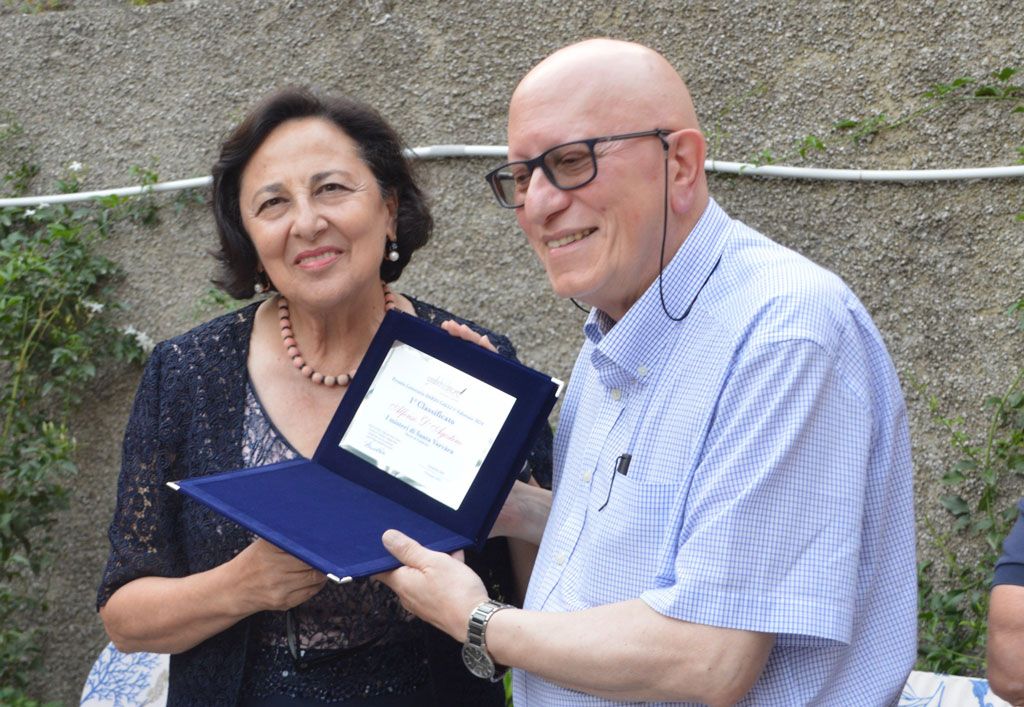
© ALL RIGHTS RESERVED

